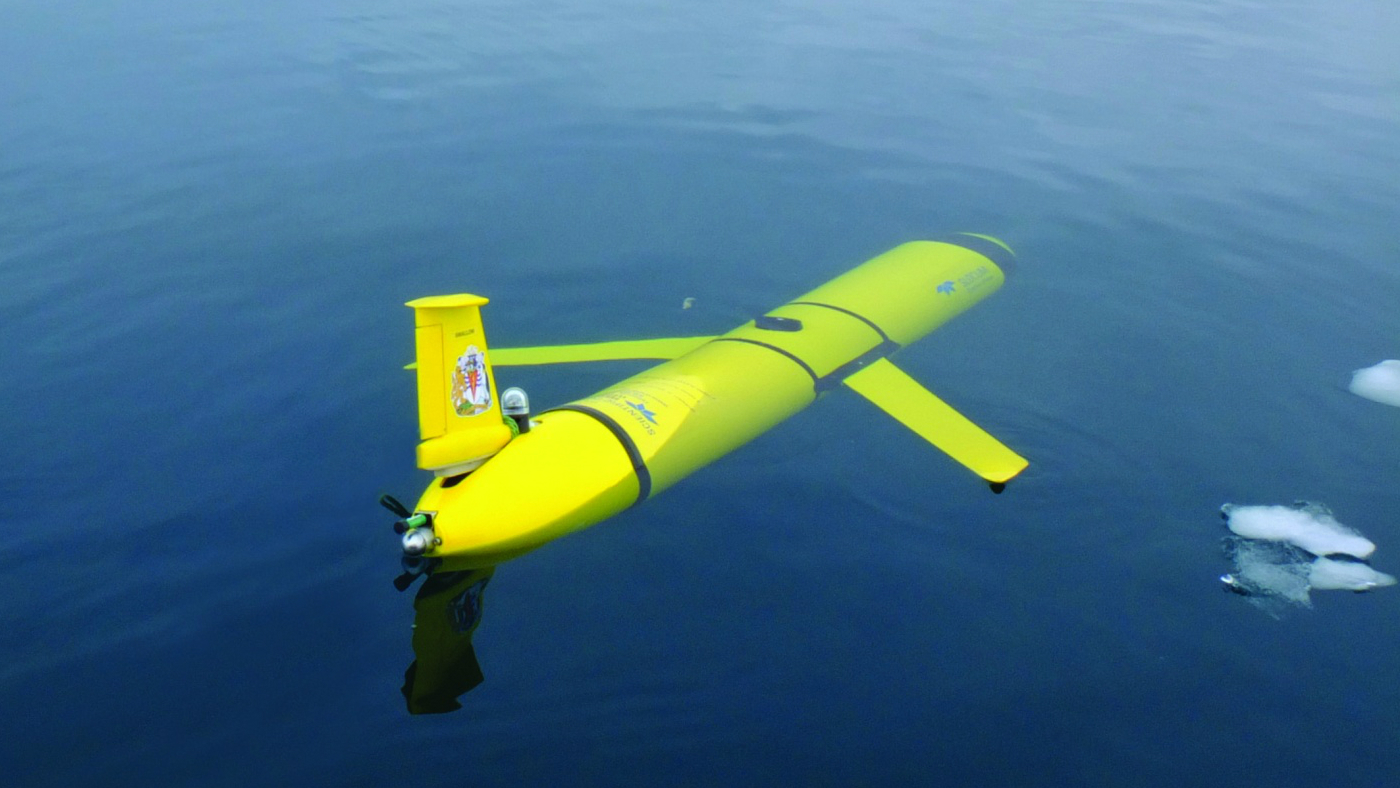Boaty McBoatface sets sail on Antarctica mission
Yellow submarine named through a public competition makes its maiden voyage

A free daily email with the biggest news stories of the day – and the best features from TheWeek.com
You are now subscribed
Your newsletter sign-up was successful
Boaty McBoatface, the yellow submarine whose name was the result of an internet joke, sets sail on its first voyage this week.
The unmanned vessel has "arguably one of the most famous names in recent maritime history", says The Guardian.
"Boaty McBoatface" came into being after the Natural Environment Research Council (NERC) called on members of the public to vote on a name for a new polar research ship.
The Week
Escape your echo chamber. Get the facts behind the news, plus analysis from multiple perspectives.

Sign up for The Week's Free Newsletters
From our morning news briefing to a weekly Good News Newsletter, get the best of The Week delivered directly to your inbox.
From our morning news briefing to a weekly Good News Newsletter, get the best of The Week delivered directly to your inbox.
However, a tongue-in-cheek comment by BBC Radio Jersey presenter James Hand, who joked on air that the £200m ship should be christened Boaty McBoatface, snowballed into an online campaign, with more than 124,000 votes cast for it.
Put in an awkward position, the NERC decided to give the polar research vessel the far more sensible name RSS Sir David Attenborough, in tribute to the naturalist who turned 90 last year. As a compromise to appease disappointed voters, it gave the public's choice to a mini submarine instead.
However, while Boaty McBoatface owes its name to a joke, its first mission could have a serious impact on research into climate change in Antarctica.
The autonomous underwater vehicle departs from Chile on Friday, attached to the RSS James Clark Ross, the polar research ship which will be replaced when the RSS Sir David Attenborough comes into service in 2019.
A free daily email with the biggest news stories of the day – and the best features from TheWeek.com
From there, Boaty McBoatface will be transported to Antarctica, where it will descend into the Orkney Passage, an 11,000ft-deep gap in an underwater ridge in the Southern Ocean.
Its mission is to investigate water flow and evidence of warming in the deep waters which help regulate the temperature of the planet.
Lead scientist Professor Alberto Naveira Garabato, from the University of Southampton, told Sky News: "We will measure how fast the streams flow, how turbulent they are and how they respond to changes in winds over the Southern Ocean.
"Our goal is to learn enough about these convoluted processes to represent them in the models that scientists use to predict how our climate will evolve over the 21st century and beyond."
-
 Local elections 2026: where are they and who is expected to win?
Local elections 2026: where are they and who is expected to win?The Explainer Labour is braced for heavy losses and U-turn on postponing some council elections hasn’t helped the party’s prospects
-
 6 of the world’s most accessible destinations
6 of the world’s most accessible destinationsThe Week Recommends Experience all of Berlin, Singapore and Sydney
-
 How the FCC’s ‘equal time’ rule works
How the FCC’s ‘equal time’ rule worksIn the Spotlight The law is at the heart of the Colbert-CBS conflict
-
 Richard Branson’s Virgin Galactic and Jeff Bezos’s Blue Origin: the new space race?
Richard Branson’s Virgin Galactic and Jeff Bezos’s Blue Origin: the new space race?Speed Read Branson has declared space open for business. Is that still a pie in the sky?
-
 Russia and China joining forces to build first Moon base
Russia and China joining forces to build first Moon baseSpeed Read Lunar pact represents ‘all kinds of security threats’ to UK and US, expert warns
-
 Mystery of where Stonehenge stones came from finally solved
Mystery of where Stonehenge stones came from finally solvedSpeed Read But how the builders moved the huge stone megaliths to the Salisbury site remains a mystery
-
 How chimpanzee ‘lip smacking’ can unlock mystery behind human speech
How chimpanzee ‘lip smacking’ can unlock mystery behind human speechSpeed Read New study reveals rhythm of great apes’ communications is identical to spoken language
-
 Scientists discover new variety of black hole
Scientists discover new variety of black holeSpeed Read Astronomers had previously missed entire class of dead star
-
 Trio win Nobel physics prize for work to understand cosmos
Trio win Nobel physics prize for work to understand cosmosSpeed Read The scientists were hailed for ‘ground-breaking’ discoveries
-
 Quadriplegic man walks using mind-reading robotic exoskeleton
Quadriplegic man walks using mind-reading robotic exoskeletonSpeed Read Robo-suit hailed as huge step forward for paralysed patients
-
 Will ancient scrolls damaged by Vesuvius be read again?
Will ancient scrolls damaged by Vesuvius be read again?Speed Read Scientists believe they have developed technology to see what is on the famous scrolls